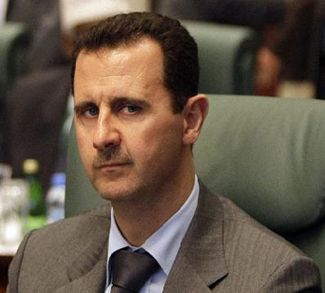The Erdogan administration has upped the ante in its attempt to reveal foreign patronage in the Syrian civil war. But in grounding a Damascus-bound Russian civilian jet, did the Turkish government roll the dice and lose?
There is no ambiguity surrounding what the Erdogan administration hoped to achieve in its grounding of a Russian civilian jet bound for Damascus earlier this week. The Turkish government was hoping to find a ‘smoking gun’ in the form of substantial Russian military assistance to the al-Assad government. Such a revelation would serve the aims of the Erdogan administration in two ways: it would do away with any remaining pretenses of Russian neutrality and thus reduce the credibility of Russian obstructionism at the UN, and it would highlight the foreign element to the Syrian conflict in such a way as to massage Turkish public opinion towards opening the door for more proactive Turkish military involvement.
Yet Turkish authorities didn’t seem to find what they were looking for on the plane, which suggests an intelligence failure on the part of the Turkish National Intelligence Organization. If they had found their smoking gun, we would see the haul being proudly displayed in front of media cameras. Instead, we’re left with vague rumors as to what was removed from the plane, most of which suggest that it was relatively unimportant replacement parts for either field communications equipment or air radar installations. The open challenge from the Russian government for the Turkish authorities to show this mystery cargo is yet another indication of its overall strategic insignificance.
Regardless of the Turkish government’s original intent, its gambit will have very definite consequences, primarily in regards to Turkish-Syrian relations. The Syrian government has condemned the grounding as an ‘act of piracy’ and has consequently stopped purchasing electricity from its neighbour to the north. Depending on the extent to which bilateral relations deteriorate, Turkey may well end up with a pretense to become directly involved in the Syrian conflict and thus achieve some of its wider regional goals such as checking the spread of Kurdish institutional authority that is emanating from northern Iraq.
There is another important angle from which to view these unfolding events, and that is Turkey’s status as a member of NATO. Considering the fact that the UN has been rendered ineffective by the threat of a Chinese or Russian veto, Turkey is well place to serve as a vanguard for NATO involvement in the Syrian civil war. It wouldn’t take much to provide a legal rationale for a Turkish declaration of war, and by extension the invocation of Article 5 of the NATO treaty; in fact, mortar attacks along the border could already serve as a rationale, though one that is admittedly flimsy. Interestingly, the majority of Turkish public opposition to the war stems from this very possibility. Turkish people don’t want to be dragged into a proxy war because of the simple geographical fact that they’re the most ideally located NATO country to do so.
Developments in Turkish-Syrian relations going forward are best interpreted with the following points in mind: The Erdogan administration is seeking a pretense to mobilize ground troops and establish a buffer zone between Turkey and Syria, and the Turkish people currently want no such thing.




